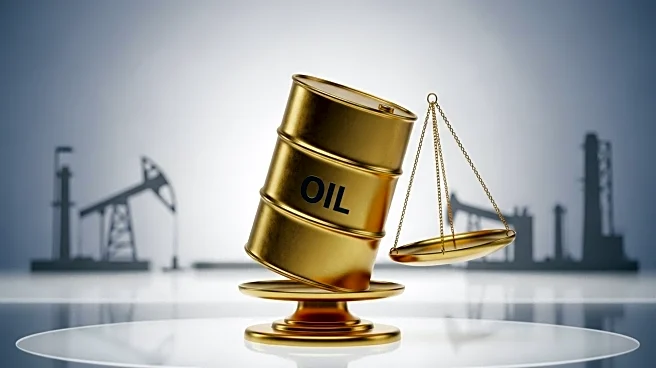What's Happening?
OPEC+ is nearing its production limits as it reverses previous cuts, with the spare capacity of member countries shrinking. The alliance has been cautious in increasing supply to avoid destabilizing oil prices amid weakening demand. However, the limited spare capacity poses a risk of price spikes in the event of a supply shock, such as geopolitical tensions in the Middle East or sanctions on Russia or Iran. Analysts warn that the market may be overestimating the available spare capacity, which could lead to challenges in managing future supply disruptions.
Why It's Important?
The diminishing spare capacity within OPEC+ is crucial as it affects the global oil market's ability to absorb supply shocks. With most members, except Saudi Arabia, UAE, and Iraq, likely maxed out, any geopolitical crisis could lead to significant price increases. This situation underscores the fragility of the current oil market and the limitations of OPEC+ in maintaining stability. The U.S. and other oil-importing countries may face higher energy costs, impacting economic growth and consumer prices. The situation also highlights the need for diversified energy sources and strategic reserves to mitigate potential disruptions.
What's Next?
OPEC+ will continue to monitor global demand and adjust production levels accordingly. The alliance may need to explore new strategies to enhance spare capacity or collaborate with non-member countries to stabilize the market. Geopolitical developments, particularly in the Middle East, will be closely watched for potential impacts on oil supply and prices. Countries reliant on oil imports may consider increasing their strategic reserves or investing in alternative energy sources to reduce vulnerability to price fluctuations.
Beyond the Headlines
The current situation with OPEC+ highlights the broader challenges of managing global energy markets amid geopolitical uncertainties. The reliance on a few key producers for spare capacity underscores the need for a more resilient and diversified energy infrastructure. Additionally, the potential for price spikes could accelerate the transition to renewable energy sources, as countries seek to reduce dependency on volatile oil markets and enhance energy security.










